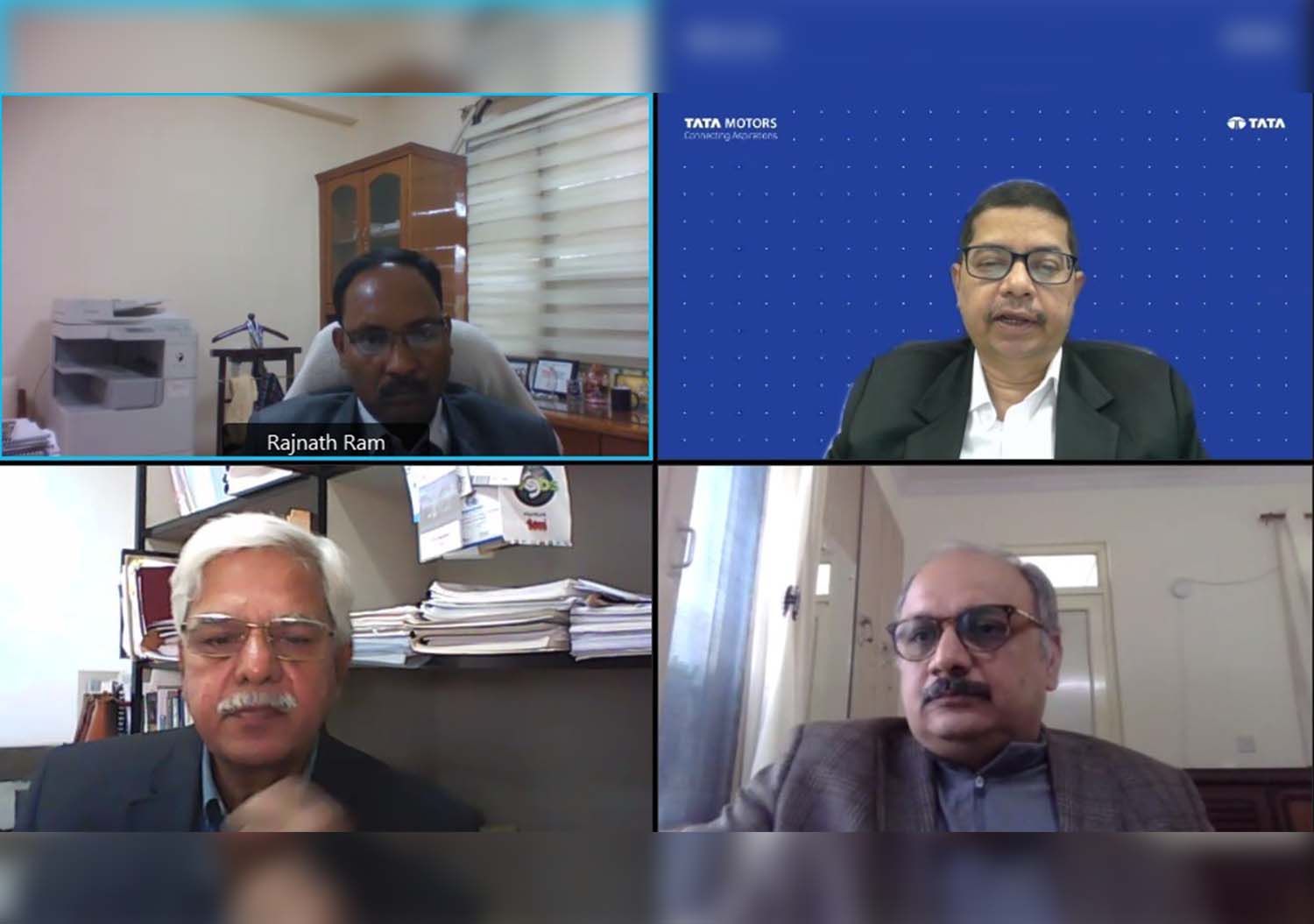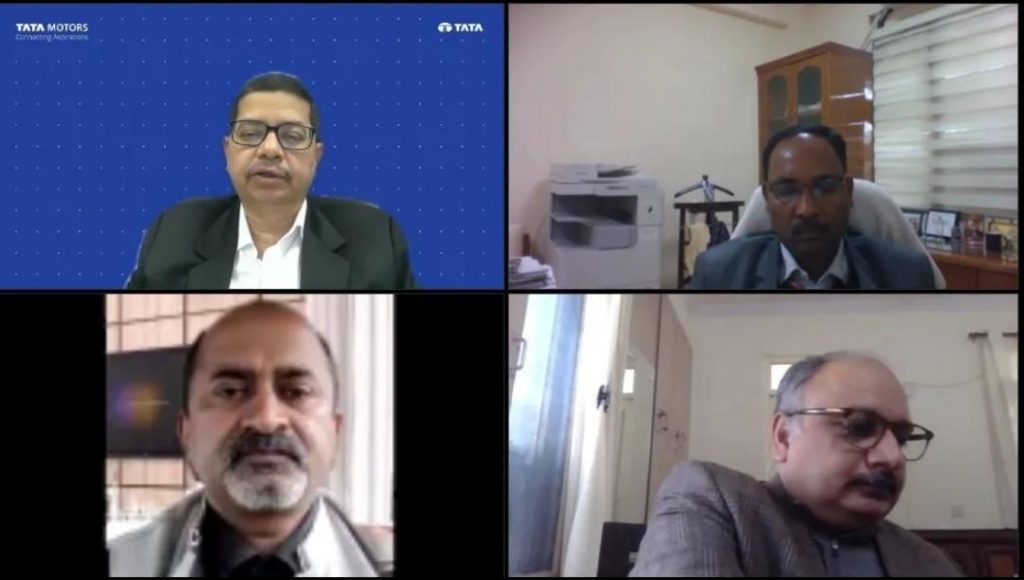Emphasizing Decarbonisation, carbon credits, reducing carbon emissions and attaining net zero emission
The Society of Indian Automobile Manufacturers (SIAM), the apex automobile industry body, organized the 19th lecture under SIAM lecture series on ‘Vision Sustainable Mobility: Implications of CoP26’ viz. imperatives of decarbonisation, carbon credits, reducing carbon emissions, attaining net-zero emission status etc. The lecture highlighted the policy, regulatory and legislative framework for decarbonisation and sustainable mobility which were recently talked about at the CoP26 summit. SIAM organised this lecture to give the industry perspective towards the climate change and to showcase the pathways India can achieve the Net Zero emissions status.
Segmented into two sessions, the lecture witnessed senior Government officials, industry stalwarts and experts discussing the vision for sustainable mobility which can help in attaining new net zero CO2 emissions status in the future.
Mr Prashant K Banerjee, Executive Director, SIAM, stated that, “With the ongoing discussions around CoP26 deliberations, the eminent speakers and experts from Industry, Government and OEM’s gathered around to throw light on the industry’s perspective towards CoP26 and showcased the way India is poised to achieve net zero emission status. Decarbonisation, low carbon strategies and carbon neutrality are some of the profound topics of discussion and therefore, form an integral part of India’s strategy towards achieving sustainability.”
The Guest of Honor Mr Rajnath Ram, Advisor (Power and Energy), NITI Aayog, Government of India, stated, “Low emission energy systems are undoubtedly a priority for the country and we are very much committed towards a sustainable future. I truly feel that our experiences can inspire other aspiring countries when it comes to sustainable energy development. Since our transport sector accounts for 20-22% of carbon emissions, decarbonisation of the transport sector is vital. I believe that Zero emission mobility is the future. The growth of EVs will have cascading impact on the economy and biofuels and green hydrogen will play a huge role in this transition.”
Mr Rajendra Petkar, Co-Chairman, SIAM Sustainable Mobility Group and President and CTO, Tata Motors Ltd, said, “The Indian Automobile sector has adopted an environmentally sustainable strategy that meet its energy efficiency goals, be it adopting technologically advanced fuel efficient products or for that matter, non-polluting vehicles. We have been aggressively looking towards lowering carbon footprint and achieving carbon neutrality. Many OEMs have set targets keeping in mind India’s goal of attaining carbon neutrality by 2070. In the Paris agreement and CoP26 deliberations, there was an increased thrust for adapting and implementing environmentally benefitting imperatives through reduced usage of fossil fuels.
On this occasion, Dr Srinivas Shroff Nagesha Rao, Former CEO, REC Foundation and Advisor to UNDP, made a presentation on the theme, “The Road to Net Zero Carbon Emissions, Sustainable Mobility in the backdrop of CoP26”.
In his special address, Mr R R Rashmi, IAS, Sr. Fellow, TERI, discussed various aspects of energy transition pathways towards Net Zero Emissions & Sustainable Mobility: Challenges and Opportunities’ while giving an insight into the future of sustainable mobility in India.
Giving an overview on Glasgow declaration/agreement at CoP26, Prof Abhishek Malhotra, School of Public Policy, IIT, Delhi and Prof B K Panigrahi, Center for Automotive Research and Tribology, IIT, Delhi, focussed on the implications for the automotive sector with outlining a national perspective. Dr Inderjeet Singh, Director & Lead, ESG and Carbon Markets, Deloitte India, explained the environment, social and governance (ESG) and carbon credit market showcasing pathways to reach net-zero emissions. Mr Vinay Deodhar, Senior Clean Energy & Climate Change Consultant, ADB, gave an overview of India’s Green initiatives- Renewable Energy, EVs, Resource Efficiency, Low Carbon Fuels, clean tech. solutions etc.
Mr Amit Bhatt, Director, WRI, threw light on the international perspective on Decarbonization of passenger transport. Showcasing the national scenario Ms Kiran Sarkar, Deputy General Manager – Sustainability Mahindra Group Sustainability Office, laid emphasis on Mainstreaming Low Carbon Strategies in Vehicle Manufacturing, Value and Supply Chains. Mr Karan Mangotra, Senior Climate Change Specialist, The World Bank, gave an overview on India’s Five Points (Panchamrits) and Carbon Neutrality and financial mechanism under deliberated at COP 26 at Glasgow.
Mr Ruchir Shukla, Director, Electric Mobility Program, Shakti Sustainable Energy Foundation, moderated the sessions.
With discussions and deliberation on India’s Carbon strategies to attain Carbon Neutrality, India’s green Initiatives, environmental and social governance (ESG) & carbon credit market therefore, SIAM’s lecture series officially concluded on a high note, with a rich and insightful exchange of ideas, best practices and strategies.
About SIAM:
The Society of Indian Automobile Manufacturers (SIAM) is a not-for-profit apex national body representing all major vehicle and vehicular engine manufacturers in India. SIAM works towards supporting the sustainable development of the Indian Automobile Industry with the vision that India emerges as the destination of choice in the world for design and manufacture of automobiles. It also works towards facilitating enhancement of the competitiveness of the Indian Automobile Industry, reducing the cost of vehicles, increasing productivity, and achieving global standards of quality.













